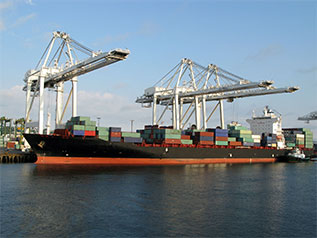
MOTION Supply Chain consistently finds that supply chains play a critical role in helping companies achieve growth objectives. In today’s markets, companies are increasingly challenging their supply chains on multiple dimensions, including flexibility, cost reduction, predictable risk management and customer service levels.
Our supply chain consultants help ensure that our client’s supply chains are a source of competitive advantage for meeting both short- and long-term goals
MOTION Supply Chain offers a broad range of supply chain solutions designed to improve productivity, reduce costs and boost your working capital.
We work with you and your team to develop and implement practical, viable strategies.
Along the way we provide full project management to help streamline the transition.
Our experienced team uses the latest analysis and modeling tools to quickly and effectively provide a total supply chain solution for your business.
Please contact our team for any support.
Optimising your supply chain network is about delivering superior customer service and achieving outstanding results.
Motion has earned a reputation for excellence. Our "can-do" attitude has made us leaders in our field.
Our consultants work closely with you to understand your business requirements. We identify current supply chain constraints, service roadblocks and cost drivers.
Then, using leading edge supply chain optimisation and planning tools, we explore every option for your business.
We focus directly on customer service, costs and inventories to maximize your Return on Investment (ROI).
Finally, we develop roadmaps and implementation plans to follow when transitioning your supply chain to the new optimised solution.
Our main aim is to reduce your supply chain operating costs.
Generally, we achieve cost savings in the range of 6-16 per cent for our clients.
Let Motion show you how.
Deciding on and managing inventory holdings is critical to being able to service customer demand.
MOTION Supply Chain can show you how you can effectively manage working capital and minimise logistics costs.
To optimize inventory it is vital to consider:
Our team will work closely with you to understand how these inputs impact on your inventory holdings. We then work with you to identify alternative inventory policies.
By using leading inventory optimisation tools, we can simulate the effect of alternative approaches on service levels and inventory holdings.
Our team is experienced with most major ERP and advanced planning systems. We can review current parameter settings and recommend changes that will allow the supply chain team to effectively manage inventory levels.
Our approach to inventory optimisation addresses a number of questions including:?
Achieving the optimal combination of facility size, layout, process flow, storage, materials handling, warehouse management systems and workload scheduling results in improved service while minimising facility operating and processing costs.
Our experienced team will review current performance indicators and benchmark these against relevant standards including service, cycle times and warehouse costs.
We work with your management and staff to plan and implement a range of initiatives across all aspects of facilties design and operations aimed at improving service and minimising operating costs.
Using advanced warehouse planning tools we are able to work on new and revised facilities design and flows and model the impact of initiatives on resourcing and operating costs.
We have worked extensively with organisations on outsourcing warehousing and facilities operations.
Our team will advise you on the managment approach that best fits your business requirements.
If outsourcing, we detail your logistics requirements and using a robust procurement approach identify potential outsource partners, analyse tender responses and select the partner that best meets your requirements.
We then work with you and the chosen partner to plan and manage and monitor the transition.
Questions addressed by warehouse and facilities optimisation include:
Expected outcomes from warehouse and facilites optimisation include:

|
Aligning Supply Chain processes with business requirements will increase efficiencies, eliminate waste and reduce service lead-times.
Using "big picture mapping" our team is able to quickly identify current process issues, rework, constraints and opportunities for improvement across the entire supply chain.
More detailed process re-design using "four field mapping" techniques firstly looks at current activities, tasks and procedures in order to identify waste, duplication and non-value adding activity.
Areas of waste typically cover unnecessary transportation, over-production, excessive inventories, waiting time, defects and associated rework.
Taking each stage in the process we then work on enhancing value-adding activity and eliminating duplicated activity, waiting time and rework.
Once new processes are mapped our team move on to documenting standard operating procedures, training personnel in new processes and monitoring and modifying processes.?
Process alignment addresses the following types of issues:
Outcomes achieved through process alignment include:
Ensuring IT systems are aligned to business requirements will result in improved customer service, reduced processing costs and effective management of supply chain activities.
We have an experienced team of IT systems specialists ready to work with your organisation to improve the effectiveness of existing IT systems. They will identify opportunities for new supply chain systems to be deployed.
By addressing the configuratio and parameters within current ERP or supply chain systems you can improve planning and operational effectiveness.
Our specialists have a detailed knowledge of ERP systems including SAP, Oracle and Movex.
By auditing current systems parameters we can quickly identify areas of misalignment and work with your IT and operational teams to make positive changes.
Our business process knowledge in supply chain allows us to identify opportunities for new systems functionality. We work independently of vendors to identify appropriate solutions. We also run transparent RFx events.
Once a solution and vendor are selected, we manage the implementation phase.
We have detailed knowledge of supply chain systems including advanced demand planning, inventory management, warehouse management and transport management solutions.
If master data is set-up and maintained accurately, this results in substantial reductions in errors and rework.
We can identify issues with master data management (MDM) and develop approaches to improve master data performance.
Questions we can answer in relation to supply chain systems alignment are:
Outcomes from better alignment of supply chain systems include: